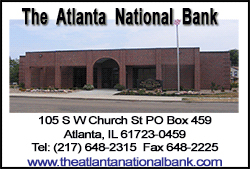|
 Russian veterinary watchdog Rosselkhoznadzor said on Wednesday it
was suspending beef and cattle imports from Romania, citing an
outbreak of mad cow disease. Russian veterinary watchdog Rosselkhoznadzor said on Wednesday it
was suspending beef and cattle imports from Romania, citing an
outbreak of mad cow disease.
Moscow has already imposed bans on Ukrainian juice and dairy
produce, Polish vegetables and Australian beef and has said it might
target Greek fruits and U.S. poultry.
However, the Russian central bank warned on Tuesday that the ban on
importing such cheap products could make it harder to control
inflation.
"We are particularly concerned that the slowdown in inflation was
lower than expected in July," Interfax quoted the central bank as
saying. Inflationary pressures usually ease in the summer thanks to
the arrival of cheap fruit and vegetables.
The annual inflation rate fell to 7.5 percent in July, but it
remains well above the 6.5 percent increase seen in 2013.
Moscow's trade bans follow new sanctions against Russia's banking
and energy sector imposed by the West, which accuses the Kremlin of
financing and supplying arms to rebels in eastern Ukraine who are
fighting for independence from the government in Kiev.

Moscow has never directly linked its trade bans to the Western
sanctions, but few doubt they are retaliation amid the worst crisis
in relations with the West since Soviet times.
TROOPS ON BORDER
Countries such as Poland have said the bans would lead to
significant damage to their economies, but economists warn they
could also hit ordinary Russians.
President Vladimir Putin ordered his government on Tuesday to work
out retaliatory sanctions but said the government should make sure
consumers don't get hit.
On the same day, business daily Vedomosti reported that Russia might
restrict or ban European airlines from flying over Siberia on Asian
routes, which would make their flights take longer and require more
fuel.
[to top of second column]
|

However, that hit shares in Russia's Aeroflot, which gets around
$300 million a year in fees from foreign airlines for flying over
Siberia, according to Vedomosti.
The Western sanctions first targeted the closest allies and
businessmen around Putin in the hope they would put pressure on the
Russian leader to change course on Ukraine.
But as the business elite stood firm behind Putin, the sanctions
were expanded to include energy, which provides more than half of
federal revenues, and banking, making it much more difficult for the
country and its companies to borrow money.
It has already been a miserable summer for some Russians;
holidaymakers have been hit by the collapse of a series of travel
companies as the economy flirts with recession and the rouble falls,
and those holding Russian shares saw them touch three-month lows on
Wednesday on fears that the Ukraine crisis would escalate further.
NATO said on Wednesday that Russia had amassed around 20,000
combat-ready troops on Ukraine's eastern border and could use the
pretext of a humanitarian or peace-keeping mission to invade.
Coca-Cola Co said on Wednesday it had taken advertisements off four
Russian television channels, but it denied the decision was due to
sanctions. It said a fall in second-quarter sales had prompted a
rethink of its marketing plans.

In 2013 Coca-Cola had a 23.5 percent share of the Russian juice
market, worth an estimated $4.6 billion, while rival PepsiCo had
35.5 percent.
(Reporting by Maria Kiselyova, writing by Dmitry Zhdannikov; Editing
by Jason Bush and Will Waterman)
[© 2014 Thomson Reuters. All rights
reserved.] Copyright 2014 Reuters. All rights reserved. This material may not be published,
broadcast, rewritten or redistributed. |